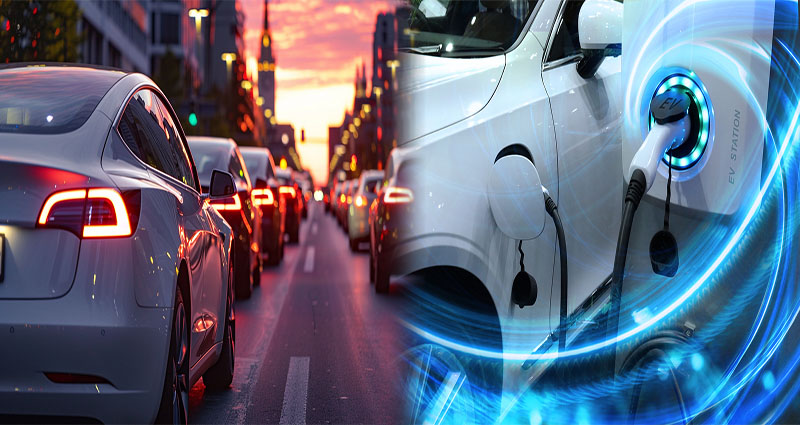In recent years, there has been a significant shift towards sustainable transportation, and at the forefront of this revolution is the rise of electric cars. With their zero-emission capabilities, electric vehicles (EVs) are becoming increasingly popular as an environmentally friendly alternative to traditional gasoline-powered cars. In this article, we will explore the key factors contributing to the surge in electric cars and their critical role in the sustainable transportation movement.
Environmental Benefits of Electric Cars
One of the primary reasons behind the rise of electric cars is their positive impact on the environment. Unlike conventional gasoline-powered vehicles, EVs run entirely on electricity, making them emission-free during operation. This reduction in carbon emissions plays a crucial role in combating climate change and improving air quality in urban areas.
Additionally, electric cars have a significantly lower carbon footprint compared to their gasoline counterparts even when factoring in the emissions generated during the production of electricity. The ongoing shift towards renewable energy sources in power generation further enhances the environmental benefits of electric cars. By charging their vehicles with solar or wind-generated electricity, owners can further reduce their carbon footprint and contribute to a greener future.
Technological Advancements and Infrastructure Development
The rapid advancement of technology has played a vital role in making electric cars more accessible and practical for everyday use. Lithium-ion battery technology, for instance, has greatly improved the range and charging capabilities of EVs, alleviating “range anxiety” concerns. Modern electric cars can now travel hundreds of miles on a single charge and can be recharged faster than ever before.
Furthermore, an increasing number of governments and organizations are investing in the development of charging infrastructure. Public charging stations are popping up in cities, highways, and commercial areas, making it more convenient and feasible for electric car owners to recharge their vehicles on the go. This growing charging network is crucial in alleviating concerns about the availability of charging stations and further promoting the adoption of electric cars.
Economic Advantages and Incentives
Apart from the environmental benefits, there are several economic advantages and incentives that contribute to the rise of electric cars. Many governments around the world offer financial incentives, such as tax credits and rebates, to encourage the purchase and use of electric vehicles. These incentives help offset the initial cost of buying an electric car and make them more affordable for consumers.
Moreover, the overall cost of owning an electric car is typically lower than that of a gasoline-powered vehicle in the long run. Electric cars have fewer moving parts, which translates into lower maintenance and repair costs. Additionally, the lower cost of electricity compared to gasoline contributes to substantial savings on fuel expenses.
The rise of electric cars is revolutionizing sustainable transportation. With their zero-emission capabilities, technological advancements, expanding charging infrastructure, and economic advantages, electric vehicles are becoming an increasingly viable and appealing option for consumers around the world. As we continue to prioritize sustainability and combat climate change, electric cars will undoubtedly play a pivotal role in paving the way towards a greener, more sustainable future. Embracing the growing popularity of electric cars will not only benefit our environment but also improve the overall quality of life for future generations.










